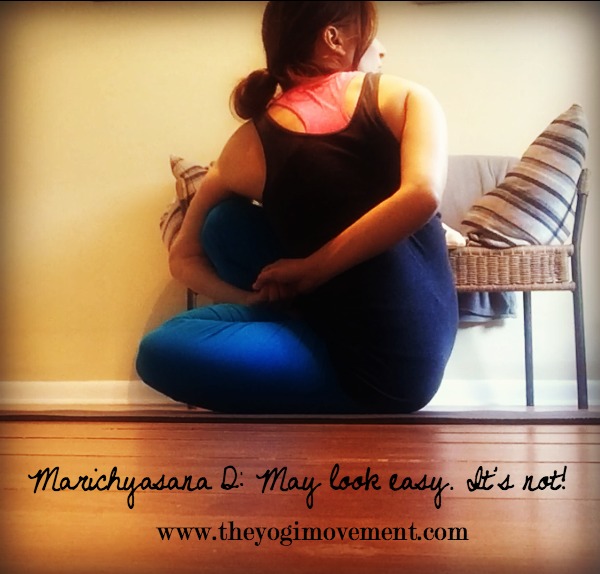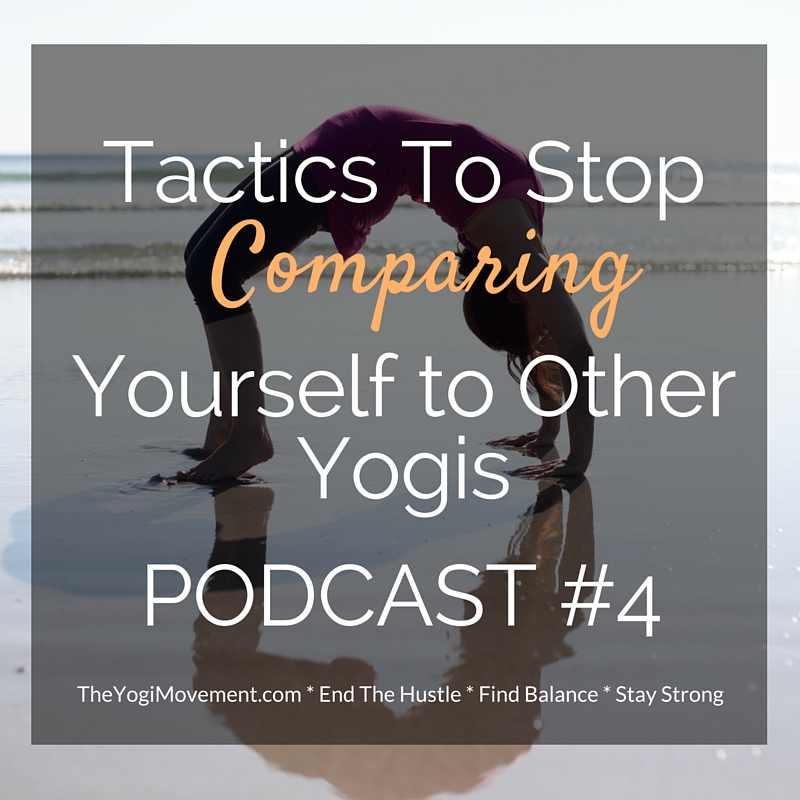Alright. So, how do you feel about this yogi selfie situation?
It seems to be a pretty big topic these days. Truth is, a bunch of people have written about it, so this isn’t anything new.
In fact, it’s pretty old news.
Even so, it seems a new post goes viral every few months. There are some pretty heavy opinions out there about yoga selfies.
What’s my opinion? I don’t care.
Selfie away my friend. Selfie away.
I think it’s just like anything. If you’re a web designer, if you’re a cook, if you’re a hair stylist, or if you make and sell jewelry, then you’re going to want to take a picture of it and show it off.
I don’t think taking pictures of yoga postures is any different.
And just like if you’re a cook or hair stylist, you’re probably going to edit, filter, clean it up, and make it as perfect as you can before posting.
In fact, I love the yoga selfie. I love it so much that I run yoga challenges monthly on Instagram. I think it’s a fun way to build community and connection. And, you get the chance to win something awesome just for participating.
But, This post isn’t really about the yoga selfie.
Today, I’m talking about how to to stop comparing yourself to the selfie & in the studio.
You have no idea how many times I hear someone tell me they won’t practice yoga or go to a yoga studio because they just don’t feel like they’re flexible enough, or they don’t feel like they’re in shape.
If I had a penny for every time I heard that – I’d be a rich yogini!
A yoga posture itself isn’t the true definition of yoga.
It’s just an expression. It’s just a shape. We practice postures to develop the tools that we can take off the mat to lead a more peaceful, compassionate, and joyful life.
I always say that your yoga practice on the mat is a reflection off the mat. But, I was thinking today that might be confusing.
A perfect yoga posture is not a reflection of a perfect life.
Just because you’re good at postures doesn’t mean you’re good at yoga.
Here’s what I mean….
Yogini 1: Let’s say you’re a yogini that falls over and wobbles in every balancing posture. You can barely touch your toes. When you twist to the right, you feel like the tin man. But, you show up to the mat every day no matter what.
In the beginning, you dread the mat because you feel so tight and stiff. Meanwhile, everyone around you is floating around gracefully moving from leg behind the head into a handstand.
You’re just trying to get into a frickin lotus position!
Over time, you notice that you stop caring how advanced people are in their practices. You still can barely twist or touch your toes, but you begin to breathe easier. You start to notice feelings and sensations in your body that are helping you open up. You’re gaining more of an understanding of where you’re holding stress. You learn to let go in your body and release the tightness.
More time passes, and you start to notice that you’re more peaceful in your daily life. You’re developing the skills of patience, discipline, and acceptance. You’re comparing yourself to others less. Your friendships and relationships are improving. You still have a lot of work to do, but you’re finding that you enjoy the process more and more.
Yogini 2: Then, you have the beautiful graceful yogini that shows up twice a month to the mat. She is super flexible and strong. She can hold every balancing posture. Not only can she do that, but she can lift her leg straight up to hug her ear and point her toes to the sky while she’s smiling!
She’s good at postures, but she has no discipline and accountability. In her life, she can’t keep her calendar straight. She’s late to meetings. Her desk is a mess. She has friends, but they can’t really count on her. Her health is so inconsistent because she can’t seem to get to sleep at a normal time, and she’s always running around from one place to another.
She knows she has so much potential, but she never follows through. She’s constantly starting projects and not finishing them. Her life lacks consistency and inner peace.
Don’t get me wrong, yogini 2 isn’t a bad yogini. There’s no such thing. Yogini #2 has the best of intentions to show up. She knows it’s good for her, and she’s striving to become consistent with yoga so she can be a better person and enjoy life.
She’s just taking a little longer, but she’ll get there.

Why is this important?
Well a few reasons. I want you to know, or at least remind you, that yoga isn’t about postures, it’s about what happens internally when we practice. I would love to say that just knowing this could take the pressure off of the comparing game, but some habits die hard.
If you’re stuck in the comparing game, it’s time to break it.
It’s effecting everything in your life, and holding you back from moving forward in other areas. You’re probably avoiding amazing opportunities because you don’t want to deal with failure or you don’t feel good enough. Stop it!
You have an amazing gift to share with the world, so let’s tackle this right now…
Here are some tactics to help you stop comparing yourself and move forward:
1. Approach everything with a beginners mind:
Have you heard the saying, “Don’t compare your beginning to someone else’s middle?”
It sounds good, but I don’t agree with it. You can’t compare yourself at all.
Here’s the thing, we all have different time frames for accomplishing something. It might take me 10 months to do a yoga posture, and maybe you can do it in three days. If you start putting limits on it, then you’re setting yourself up for failure.
You’re making it about the destination, and it needs to be about the journey.
This goes for everything – losing weight, starting a business, or learning a new skill. We’re all on different paths. We all have different strengths, weaknesses, skills, and capabilities. We all work differently, and we’re all going to be different.
And, if you’re saying there’s a beginning and middle, then there must be an end. My philosophy is that we’re always at the beginning. Everything should be approached with a beginners mind. There’s always more to learn. There’s always room for improvement.
When you can let go of the beginning, middle, and end – then you can let go of the chase, and just be in the moment.
2. You don’t want to be the most successful person in the room:
This was a very important lesson I learned when I became obsessed with entrepreneurship. I was trying to do everything on my own, and getting frustrated, depressed, and felt alone.
When I started listening to eventual millionaire and learning from other entrepreneurs, almost everyone said:
You need to ask for help. Get over yourself. Join communities, find a support group, and learn from the successful people around you.
This is the same for yoga.
You want to surround yourself with people who inspire you. Consider yourself blessed if you’re around a bunch of yogis who are not only good at postures, but also dedicated to their practice. These people are committed to showing up even when they feel resistance. These people never give up. They are okay with falling, and they pick themselves up.
When it comes to the physical practice, we all have something we can learn from another person – even the person you’re comparing yourself too. The practice is living and breathing, and must be looked at as a flux and flow – not just focused on one posture.
In my personal practice – I am strong. I can hold handstands, float in jump backs and jump throughs. I can hold my whole body up on my hands for a steady 10 breaths with no problem.
I’ve had to really work at my flexibility. On the days where I don’t get much sleep, or I have stress. I find myself having a really hard time with twisty postures.
On the other hand, I’ve seen students that are super flexible, but have no control of their bodies. They can do all of the leg behind the head stuff, but holding a low plank is impossible for them.
Everyone has something they’re working hard on, and everyone has their thing that comes naturally.
Next time you see a yogini you’re comparing yourself too, think about your natural skills and strengths because I am sure there’s a little something they wish they could learn from you.
Stephen Covey said,
Dependent people need others to get what they want. Independent people can get what they want through their own effort. Interdependent people combine their own efforts with the efforts of others to achieve their greatest success.
Think about that! If you can combine your own practice while learning from someone else’s practice and experience, then you will achieve your greatest success.
It’s normal to want to master a posture. Wanting to do postures and working towards them has its benefits. If you want to do an arm balance or headstand, then that’s fine!
There’s nothing wrong with desires.
It’s the clinging, craving and attachment that you need to work on. Can you have desires without being attached to the outcome. That’s what you’re going for.
If you’re doing yoga to get better at postures, and have the impression that if you’ll get your leg behind your head then you’ll be a better yogini and happier life, then you have the wrong idea about yoga.
Here’s your homework:
Have you found yourself comparing yourself to others? What did you do to get through this? Share what works for you below in the comments.


Love this! I’m that inflexible, stiff, nervous girl who still hides in the back of yoga classes because I don’t want anyone to see me fall out of tree pose. But I’m trying my hardest to get what I need out of yoga. I’m there to practice my meditation, my breathing, and to hopefully get a bit stronger and more flexible over time. I’ve been working on it at home as well, and I’m definitely seeing some cool changes. I do occasionally take yoga selfies, but I’m trying really hard not to compare mine to others. Thanks for sharing!
Thanks Kristen! Glad to hear you’re doing the work 🙂